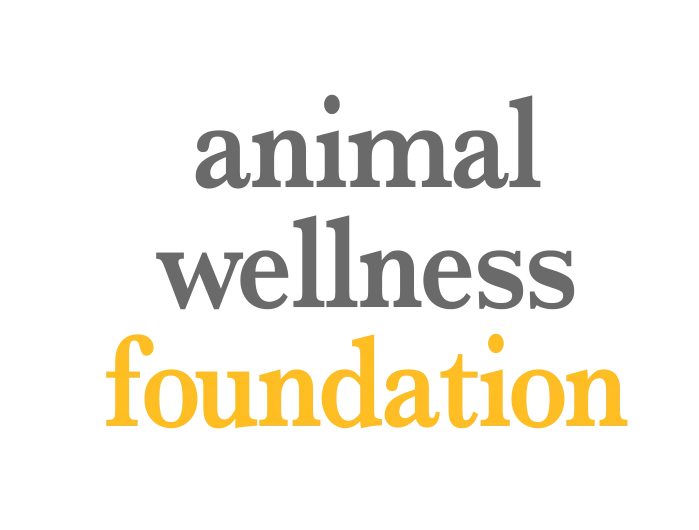Press Release



- For Immediate Release:
- Contact
- Scott Beckstead • 541-530-3460
- sbeckstead@centerforahumaneeconomy.org
Animal Wellness Groups Call for U.S. Government Buy-Out of Wisconsin Mink Farms to Prevent Them from Becoming COVID Super-Spreaders
Declining Mink Industry Mainly Serves China, and Continued Operations Are No Longer Worth the Risk to U.S. Communities
Washington, D.C. — Today, Animal Wellness Action, the Animal Wellness Foundation, and the Center for a Humane Economy called on the Wisconsin Governor Tony Evers to coordinate with the U.S. Department of Agriculture (USDA) to coordinate a government buy-out program for the state’s mink farms, after COVID-19 outbreaks at farms there have infected and killed tens of thousands of mink. The program would be modeled after buy-out programs in France and the Netherlands, which have also had major outbreaks of COVID-19 at their farms. Other European countries, including Poland, are considering similar buy-out programs.
“When I grew up on a mink farm in Idaho, it was a significant and profitable industry,” said Scott Beckstead, director of campaigns for the Center for a Humane Economy and Animal Wellness Action. “Now, farms go belly up every year because pelt prices have crashed.” Because of decreasing interest in fur from major retailers, designers, and customers, the total value of U.S. mink pelt sales has dropped from $291 million in 2011 to $59 million in 2019 – a five-fold decrease in just eight years. According to the U.S. Department of Agriculture, the total number of pelts produced annually, however, has only dropped nine percent, from 3.1 million in 2012 to 2.7 million in 2019, meaning that mink farmers have had little drop in production costs but precipitous declines in total revenues. Wisconsin is the nation’s top mink-farming state, accounting for more than one-third of production.
There are 275 farms located in 23 states, but dozens are closing every year because the business model for the mink industry no longer works in a world that increasingly shuns fur and that has a range of ready and suitable alternative fabrics. The main buyer for U.S. mink pelts is China.
“Today, with the knowledge that mink may be the most susceptible non-human mammal to COVID infections, it is very hard to justify keeping this receding industry alive as it becomes a potential super-spreader of the virus,” said Beckstead, perhaps the most common name in the mink industry in Utah and Idaho. “A government shutdown of this industry, albeit with compensation for the farmers, is an urgent matter, and we ask Governor Evers to take action on this front.” Beckstead participated in his grandfather’s mink pelting operation starting at age eight.
Mink seem especially susceptible to the virus, with high infection and mortality rates. A number of studies have documented incidents of intraspecies transmission of COVID-19 from infected animals to other animals and humans. Specifically with regard to mink operations, “[g]enetic and epidemiological sleuthing has shown that at least two farm workers have caught the virus from mink—the only patients anywhere known to have become infected by animals.”
Given waning consumer interest in the West for fur, most U.S.-produced mink pelts are sold to China.
“The United States is becoming a mink factory farm for China,” said Wayne Pacelle, president of Animal Wellness Action and the Center for a Humane Economy. “The current circumstance with mink production and trade is a boon for China and a viral time bomb for the United States. China outsources mink production to the United States and farmers assume the financial liability and U.S. communities assume the risks of having super-spreader farms in their communities. I can understand why China loves this, but I cannot for the life of me understand why we allow this kind of asymmetrical arrangement to persist.”
The onset of the COVID-19 virus lies in the all-too-present intersection between inhumane treatment of certain species and the transmission to humans. The filthy, cramped, and crowded environment on industrial mink farms, and the unyielding stress that the animals endure, almost certainly weakens their immune response and enhances the likelihood of infections. Mink are wild, semi-aquatic animals that typically roam and hunt over land areas as large as 2,500 acres. By contrast, the unnatural, barren conditions that mink are subjected to on these facilities greatly increases their susceptibility to the virus as their stress levels rise, and results in abnormal, psychotic behaviors such as pacing, swaying, self-mutilation, cannibalism and infanticide.
France and the Netherlands have decided to shutter their mink farms after major outbreaks occurred there. Denmark, Poland, and Spain are considering similar actions. These nations understand zoonotic disease risks associated with mink farming exceed the economic rewards they bring through the commerce to China.
The Center for a Humane Economy, AWA, and AWF suggest Wisconsin moves ahead with a three-step plan.
1. Impose an immediate quarantine of all mink farm operations in Wisconsin.
Mink farms should be taken out of the stream of commerce as these rampant infection rates continue. There should be no movement of non-essential products or workers to and from mink farms, including the movement of live animals on and off the farms or animal furs destined for the marketplace.
2. A halt to breeding programs to arrest the expansion of host animals.
Mink farms should be directed to stop breeding to reduce the number of animal hosts for the virus.
3. Coordination with USDA officials to implement a longer-term solution.
The state should coordinate with the U.S. Department of Agriculture to implement a program that includes a buyout with the goal of phasing out industrial mink farms in the U.S. A buyout is the humane thing to do for the producers, and it is the right economic and public health decision for Oregon.
The animal welfare groups sent letters today to Governor Evers and Secretary Perdue today. The letter to Evers can be viewed here and the letter to Perdue can be viewed here.
Animal Wellness Action (Action) is a Washington, D.C.-based 501(c)(4) organization with a mission of helping animals by promoting legal standards forbidding cruelty. We champion causes that alleviate the suffering of companion animals, farm animals, and wildlife. We advocate for policies to stop dogfighting and cockfighting and other forms of malicious cruelty and to confront factory farming and other systemic forms of animal exploitation. To prevent cruelty, we promote enacting good public policies and we work to enforce those policies. To enact good laws, we must elect good lawmakers, and that’s why we remind voters which candidates care about our issues and which ones don’t. We believe helping animals helps us all.
The Center for a Humane Economy (“the Center”) is a non-profit organization that focuses on influencing the conduct of corporations to forge a humane economic order. The first organization of its kind in the animal protection movement, the Center encourages businesses to honor their social responsibilities in a culture where consumers, investors, and other key stakeholders abhor cruelty and the degradation of the environment and embrace innovation as a means of eliminating both.
The Animal Wellness Foundation (Foundation) is a Los Angeles-based private charitable organization with a mission of helping animals by making veterinary care available to everyone with a pet, regardless of economic ability. We organize rescue efforts and medical services for dogs and cats in need and help homeless pets find a loving caregiver. We are advocates for getting veterinarians to the front lines of the animal welfare movement; promoting responsible pet ownership; and vaccinating animals against infectious diseases such as distemper. We also support policies that prevent animal cruelty and that alleviate suffering. We believe helping animals helps us all.